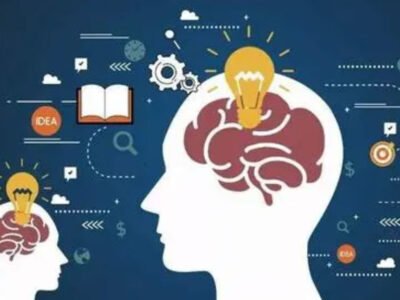Becoming an effective teacher requires time and dedication to master the art. While great teachers have typically gained their knowledge through years of experience, many now possess higher education degrees designed to help them become even more efficient in their profession. To take advantage of all the tools available for classroom success, one must understand what degrees can support a career as an educator. This article will explore seven different degree options specifically tailored for those seeking to become successful teachers and their potential benefits. Analyzing these opportunities will help you understand which degrees might best support your ambitions within this noble field.
- Bachelor’s degree in Education
A bachelor’s degree is the initial step in becoming a certified teacher since almost all public schools require it. The degree provides the foundation necessary to teach at all levels until high school education while providing a comprehensive overview of the teaching principles. It will prepare teachers to meet the challenges of teaching in various settings. Teachers will thoroughly understand teaching theories, methods, and practices with this degree. They will learn the skills needed to plan lessons, evaluate student performance, and communicate effectively with students and their parents. Teachers will also learn how to use classroom technology to enhance learning outcomes effectively. This degree provides a stepping stone to begin the teaching journey.
- Master’s degree in Education
A master’s degree in education is a great way for teachers to further and improve their careers and skills. Through this degree, teachers can focus on developing educational policies and learn how to implement their practices. If you want to pick a specialization, many teachers opt for a master’s of education in curriculum and teaching. This high-paced teaching masters program allows working teachers to advance their careers at their own pace while they continue to work. With this degree, teachers gain valuable skills such as curriculum design, classroom management strategies, student assessment practices, etc. More importantly, this degree allows you to understand student needs to create an effective learning environment. It will prepare you to help your students in their academic journey and make them reach their full potential.
- Master’s degree in Special Education
A master’s degree in special education provides teachers with skills to teach students with special needs. This field requires great skill and expertise, and through this degree, you will learn the necessary qualifications to become an efficient teacher. The curriculum covers behavior management strategies, assistive technology, and differentiated instruction. These topics will allow you to understand the unique needs of students with disabilities. It will also teach you how to design effective instructional strategies and classroom management techniques. Teachers also learn to collaborate with other professionals, such as psychologists, social workers, and speech-language pathologists, to ensure that all students receive the best possible educational experience. Teachers who wish to work in special education settings or specialize in a particular area of special education, such as autism or learning disabilities, should surely opt for this program.
- Master’s degree in English
A master’s in English help teachers learn skills needed to teach English, literature, and writing. The benefits of studying for this degree are many. It gives teachers a deeper understanding of their subject matter, which helps them to be more effective educators. They learn invaluable communication techniques to help them relate better with their students and colleagues. They also understand research methods that can allow them to become more informed about current educational topics like pedagogy and curriculum innovation. This degree is also in demand since many schools seek highly qualified English language teachers. This higher level qualification also makes teachers more competitive when applying for jobs or promotions in their respective fields.
- Master’s degree in Educational Technology
A master’s in educational technology focuses on using technology to enhance teaching and learning in educational settings. This program allows teachers to learn the skills and knowledge to design, develop, and implement technology-based educational solutions. You can learn how to create learning management systems and instructional design and incorporate online learning and multimedia design. This degree is becoming increasingly popular and essential since the evolution of technology in teaching. By learning how to integrate technology into teaching practices, you can enhance the learning experience for your students and make lessons more engaging, interactive, and accessible. Since technology continues to play an increasingly important role in education, there is a growing demand for professionals with expertise in educational technology. Thus, this degree can help teachers stay current and competitive in this field.
- Master’s degree in Mathematics Education
A master’s degree in mathematics education helps prepare instructors to effectively teach the subject of mathematics at the elementary, middle, or secondary levels. One significant benefit of this degree is that it gives teachers a deeper understanding of how math works and how best to convey its importance and relevance in everyday life. Teachers will get extensive training in algebraic reasoning, calculus, geometry, probability, and statistics, ideally placing them to impart comprehensive lessons on these subjects. The structure they bring into their classrooms demonstrates the practical applications behind many mathematical ideas and theories, making it easier for young minds to assimilate such concepts without too much strain.
- Master’s degree in Educational Leadership
A master’s degree in educational leadership can provide teachers with the theoretical knowledge and practical skills to become successful educational leaders. With this degree, teachers can build their understanding of educational theories, deepen their knowledge of research methods, and hone their management skills to promote positive organizational change. Teachers who pursue a master’s degree in educational leadership may also gain valuable insights into school budgeting practices and organization development models. They also learn public relations techniques for dealing with stakeholders as well as better solutions for addressing school safety issues or developing policies that minimize conflicts between staff members or students. Through courses like performance evaluation techniques and conflict resolution strategies, these professionals gain essential skills to effect change within an organization while inspiring trust from others.
Final Thoughts
Pursuing a degree in education is a wise investment for anyone aspiring to become an efficient teacher. These degrees provide teachers with the essential knowledge to become effective practitioners. By earning one of these degrees, you will be well-equipped to inspire and educate the next generation of learners.














Comments